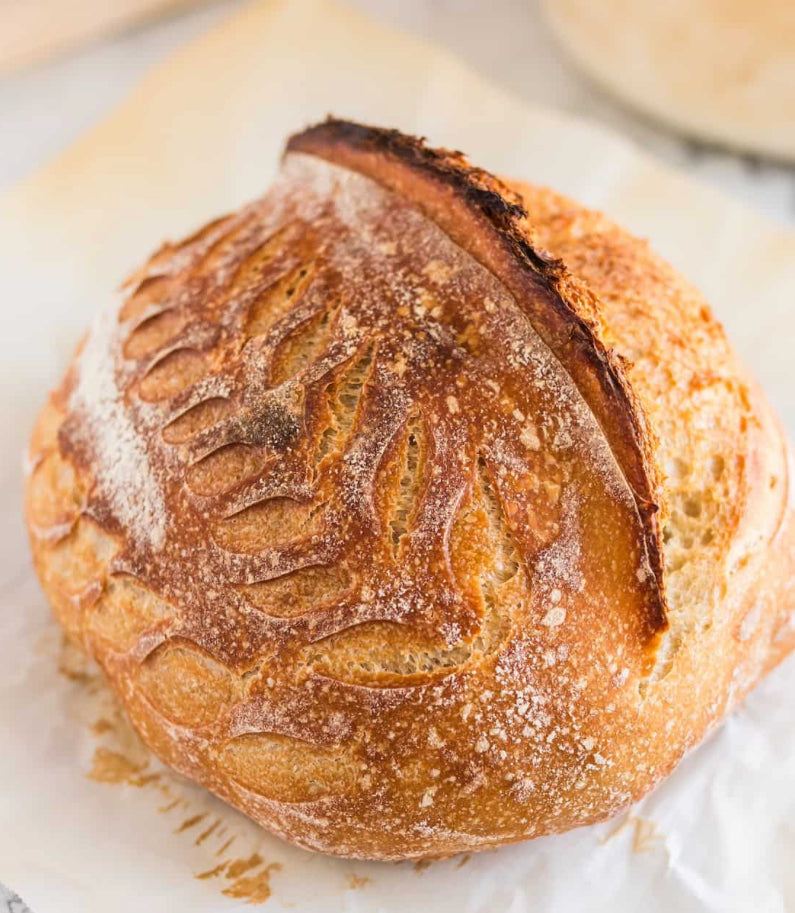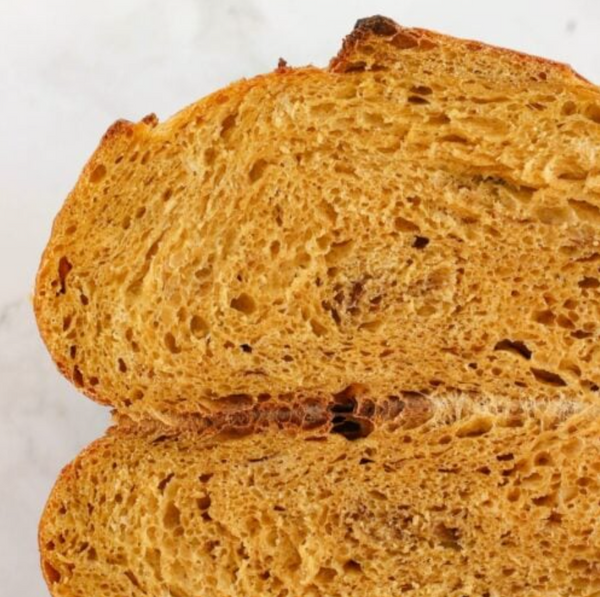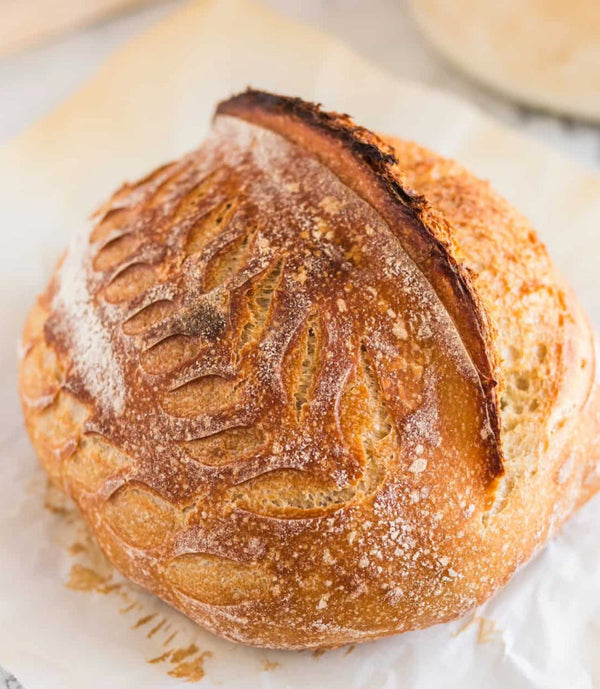Why Sourdough Should Be Your Go-To Bread: Nutritional Perks You Can't Ignore
Sourdough bread has captured the hearts of many home bakers, with its irresistible tangy flavor and delightfully crusty exterior. As we trace the rich history of sourdough, we uncover a treasure trove of nutritional benefits that make it a standout choice for health-conscious individuals. From the alchemy of wild yeast fermentation to the artful crafting of a perfect loaf, sourdough baking offers a rewarding experience for both beginners and seasoned pros. In this post, we'll share tips that will help you master homemade sourdough and introduce you to some delightful recipes. Whether you're looking to refine your baking techniques or simply enjoy a slice of wholesome goodness, sourdough is the perfect companion for your culinary adventures. 🍞
History of Sourdough
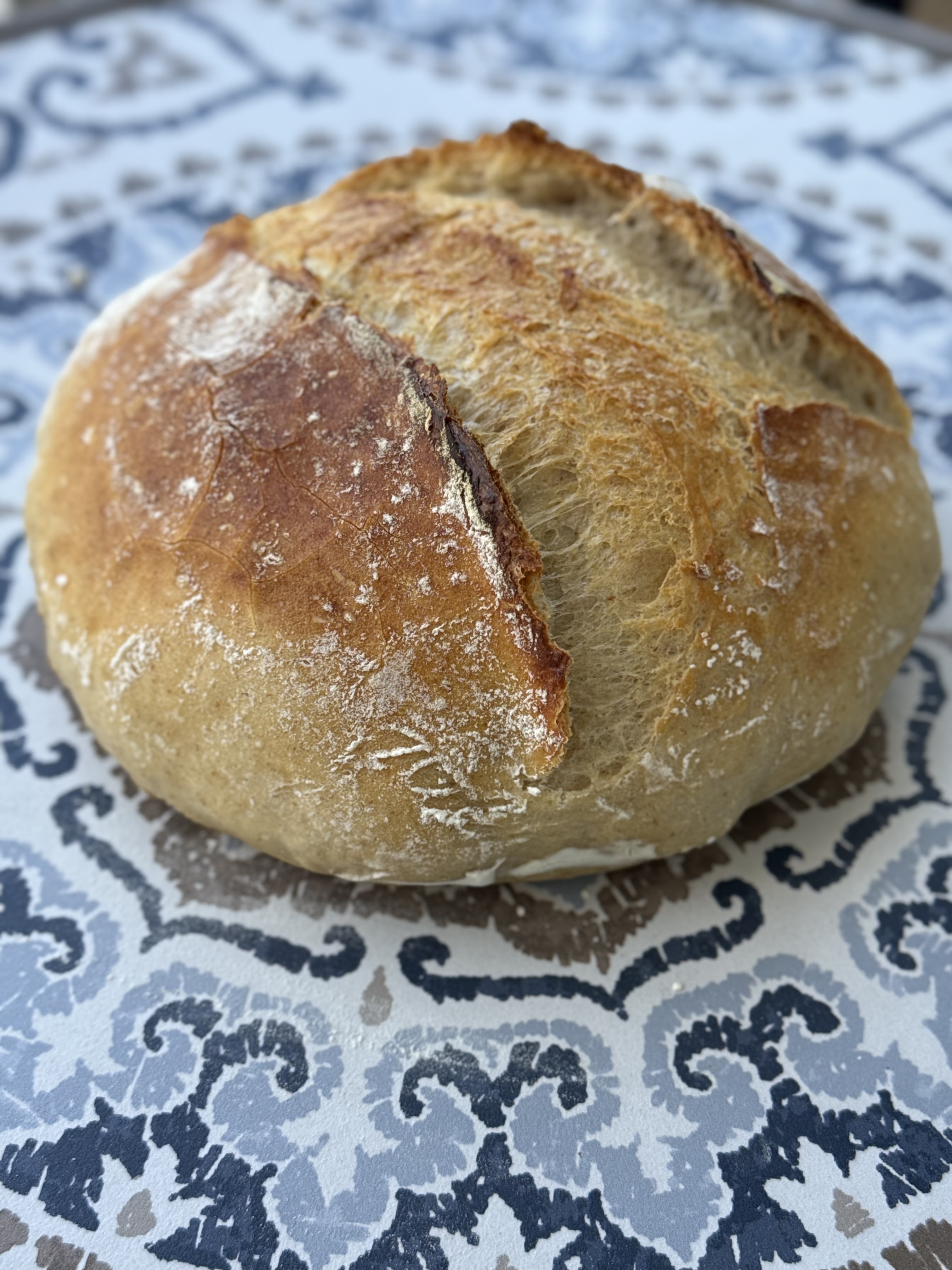
Sourdough's rich history spans millennia, showcasing its enduring appeal and cultural significance. Let's explore the ancient origins and cultural impact of this beloved bread.
Ancient Origins
Sourdough's story begins in ancient Egypt, around 1500 BCE. Bakers discovered that wild yeast and bacteria could naturally ferment dough, creating a tangy, flavorful bread.
This technique spread across civilizations, becoming a staple in many cultures. The Romans adopted sourdough, using it to feed their legions during long campaigns.
During the California Gold Rush of the 1840s, sourdough gained popularity among prospectors. They carried sourdough starters in their packs, ensuring a reliable food source in the wilderness.
Cultural Significance
Sourdough has played a crucial role in many cultures, often becoming synonymous with regional identities. In San Francisco, the unique local microclimate produces a distinctive sourdough flavor that's become world-famous.
In countries like Germany and Poland, sourdough rye bread is deeply ingrained in culinary traditions. It's not just food; it's a connection to heritage and history.
Today, sourdough continues to captivate bakers worldwide. Its resurgence in recent years reflects a growing appreciation for artisanal, slow-fermented foods and traditional baking methods.
Nutritional Benefits of Sourdough
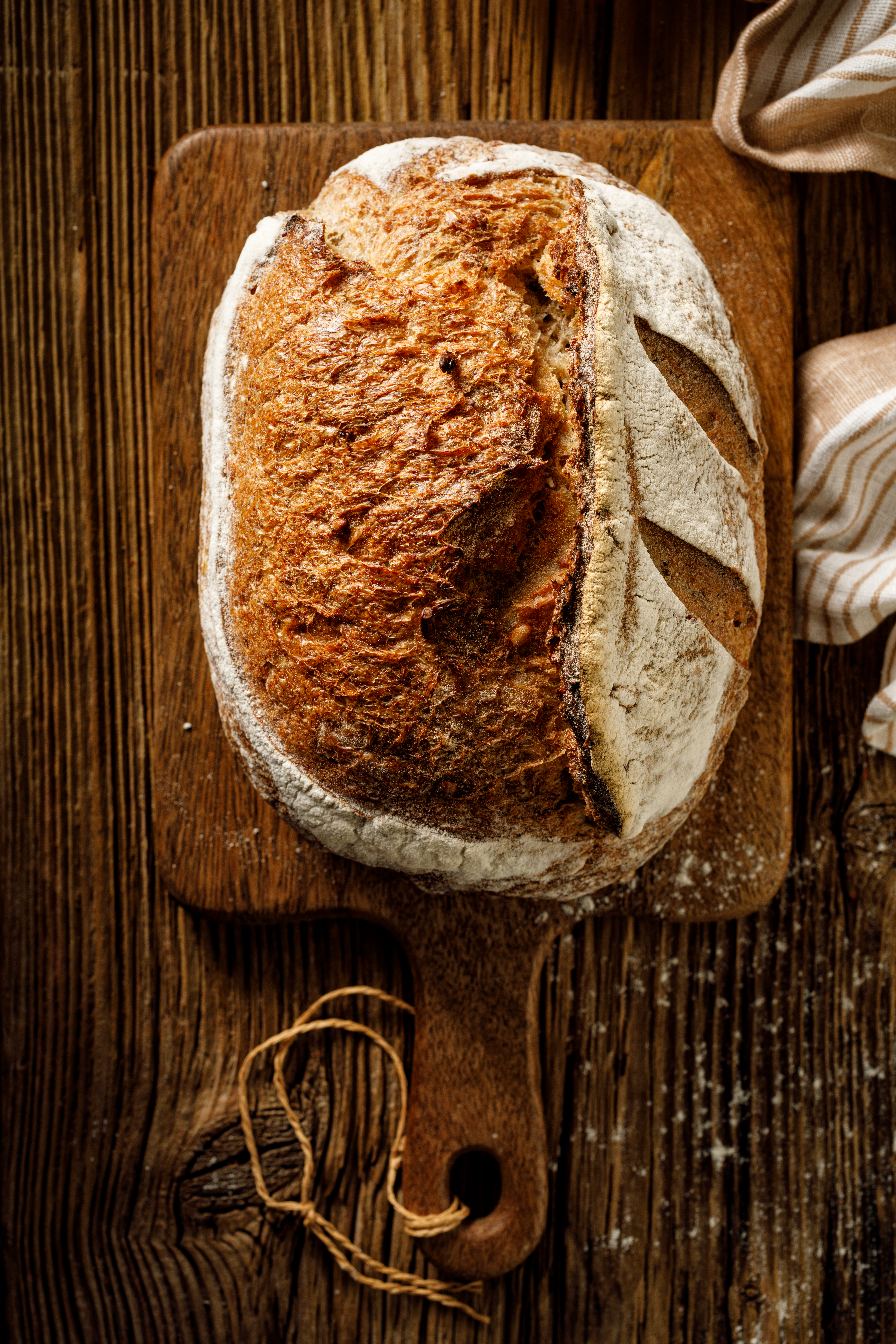
Sourdough isn't just delicious; it also offers several health advantages over conventional bread. Let's delve into the nutritional perks that make sourdough a smart choice for health-conscious eaters.
Digestive Health
Sourdough's fermentation process creates a bread that's gentler on the digestive system. The long fermentation breaks down gluten proteins, making them easier to digest.
This process also produces beneficial compounds like lactic acid, which can support gut health. Many people who struggle with regular bread find sourdough more digestible.
Studies have shown that sourdough fermentation can increase the bioavailability of nutrients in the bread. This means your body can absorb more vitamins and minerals from each slice.
Lower Glycemic Index
Sourdough bread typically has a lower glycemic index compared to regular bread. This means it causes a slower, more gradual rise in blood sugar levels.
The fermentation process alters the structure of the carbohydrates in the bread. As a result, your body digests and absorbs them more slowly, helping to maintain stable blood sugar levels.
For people managing diabetes or watching their carbohydrate intake, sourdough can be a better option than traditional bread. It provides sustained energy without causing rapid spikes in blood sugar.
Homemade Sourdough Tips
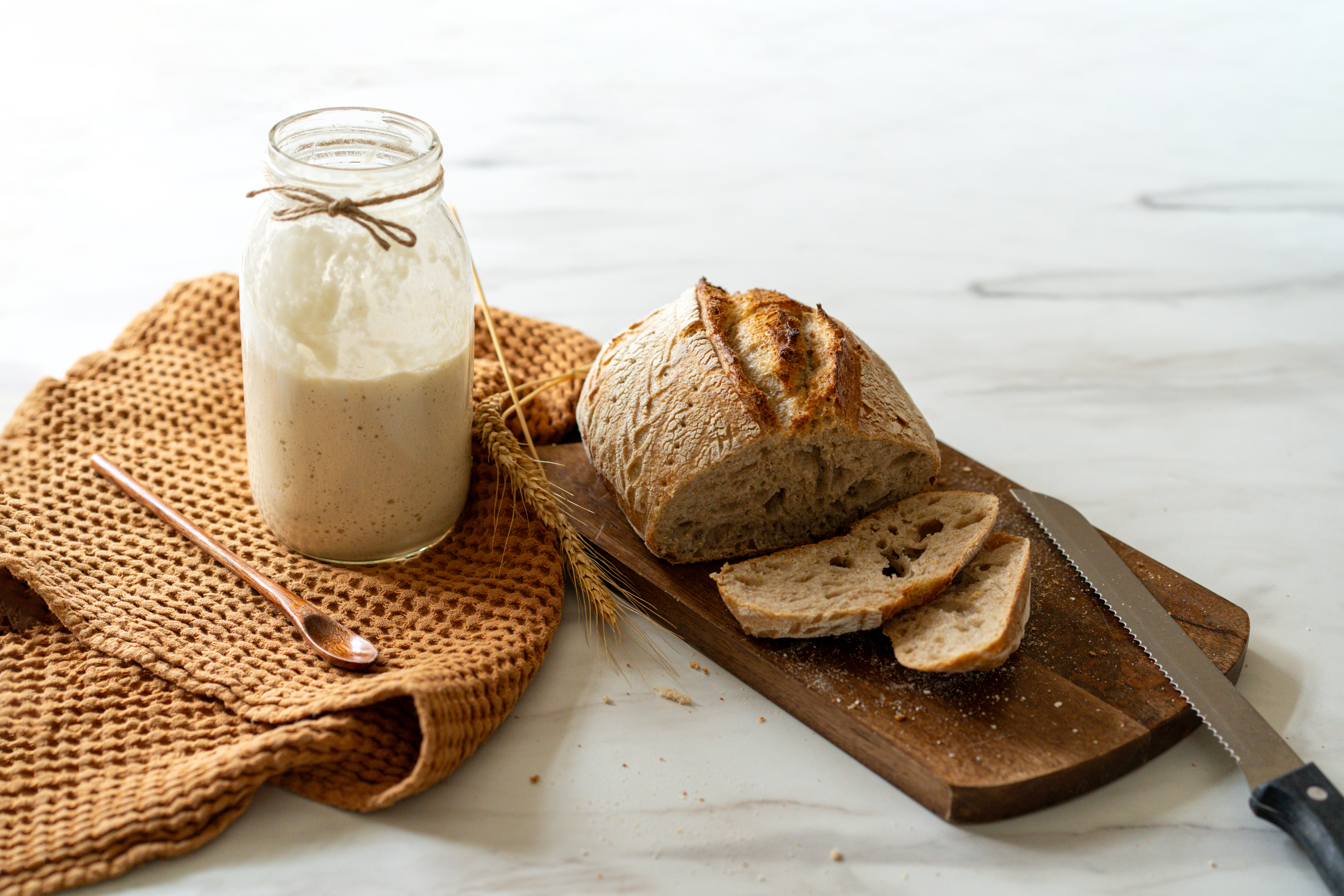
Baking your own sourdough can be a rewarding experience. Here are some essential techniques and creative recipes to help you on your sourdough journey.
Essential Baking Techniques
Creating great sourdough starts with understanding the basics. Here are key techniques to master:
-
Maintain a healthy sourdough starter by feeding it regularly with flour and water.
-
Use the "float test" to check if your starter is ready: a small amount should float in water.
-
Develop gluten through proper kneading or stretch-and-fold techniques.
Temperature control is crucial in sourdough baking. Keep your dough at around 75°F (24°C) for optimal fermentation.
Proper shaping and scoring of your loaf can significantly impact the final result. Practice these techniques to achieve that perfect sourdough aesthetic.
Creative Sourdough Recipes
While classic sourdough bread is delicious, don't be afraid to experiment with flavors and add-ins. Try incorporating herbs, nuts, or dried fruits into your dough for unique variations.
Sourdough isn't just for bread. Use your starter to make pancakes, pizza dough, or even chocolate cake for a tangy twist on classic recipes.
For a savory option, try sourdough focaccia topped with olives, rosemary, and sea salt. The long fermentation enhances the flavors, creating a truly memorable bread.
